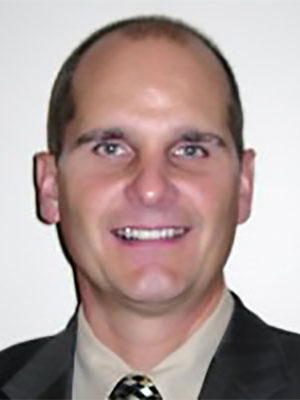The Capitol Report, produced by WisPolitics.com — a nonpartisan, Madison-based news service that specializes in coverage of government and politics — provides a weekly analysis of issues being debated in Wisconsin state government. It is underwritten by the WNA and produced exclusively for its members. WisPolitics.com President Jeff Mayers is a former editor and reporter for the Associated Press and a former political writer for the Wisconsin State Journal.
• Download this column as a Word document
• Download the WisPolitics.com logo
By WisPolitics.com
A lot of the economic stats are very, very good. Record low unemployment. Unprecedented state budget surplus. Resilient consumer spending. Easing of pandemic-era shortages, inflation, housing speculation and high gasoline prices.
But credit tightening, some big bank failures and labor shortages are getting executives and government officials worried that a recession could be on the horizon.
So maybe it shouldn’t be a surprise that a recent gathering of smart financial minds in Madison resulted in a consensus recession forecast. The Wisconsin Economic Forecast Luncheon was held in late April in Madison. It was organized by WisPolitics.com, WisBusiness.com and the Wisconsin Bankers Association.
At the event, national and Wisconsin experts agreed the U.S. economy is likely headed for a recession later this year as federal officials continue their efforts to tamp down inflation. That could be bad timing for President Biden, who is seeking reelection next year. And if a recession is deep, it could exacerbate the housing shortage and demand tougher budgeting at the state level.
Todd Mattina, head economist for the State of Wisconsin Investment Board, said he and other economists need to be “cautious” about forecasting recessions given the uncertainty involved. But he noted peak inflation rates — like last year’s rate of around 9 percent — are usually followed by recessionary periods.
“You don’t come off peak inflation rates like that historically without a recession at the end,” he said. “Usually the playbook is central banks hike interest rates and then that leads to a slowdown and a recession … I suspect we’ll see some kind of dynamic along those lines.”
But he and other speakers expressed uncertainty about the likelihood of a “soft landing” versus a “hard landing,” where regulatory efforts to stave off inflation lead to a more severe economic downturn.
In a separate presentation from the other panelists, a managing director and senior economist for Wells Fargo’s Corporate and Investment Bank said a soft landing is possible — but not likely. Sarah House noted job growth has been strong in recent months but added that’s expected to change, pointing to “some cracks under the surface.”
“If you look at temporary hirings … We’ve seen that contract over the past year pretty sharply,” the Charlotte-based economist said. “So that suggests that you’re going to see slower growth in hiring overall. And we are starting to see layoffs tick up.”
Forward Analytics economist Dale Knapp predicted a recession will occur in the second half of this year. While he doesn’t expect a major downturn, he said it will “probably be a little bit more than mild.”
By the first quarter of 2024, he expects the national economy to begin recovering. But he added that outlook depends greatly on “how well the Fed handles this,” highlighting the challenge of balancing efforts to reduce inflation with maintaining a healthy economy.
RELATED: Read more Capitol Report columns from WisPolitics.com
Meanwhile, Marquette University Prof. David Clark said a recession is slightly more likely than not to occur.
“I think that there’s probably a 50-50 chance — maybe even a 51-49 percent chance, I don’t want to get too bold here, that they’ll classify the beginning of a recession sometime in the second half of the year,” he said, though he noted the National Bureau of Economic Research “takes a long time to make up their mind” about declaring a recession.
He said inflation is “probably a tougher problem to deal with” than the Federal Reserve would hope, though he said officials are likely pleased with the progress they’ve made already after inflation recently fell slightly to around 5 percent. Still, that remains well above the target rate of around 2 percent.
The president of Farmers & Merchants Bank of Kendall, Cynthia Erdman, highlighted the impact this expected recession will have on families in the United States. Though she said by the middle of next year, “I think most American families are going to feel a little relief.”
The discussion also captured the effects of inflation and interest rate hikes on the housing market to the state’s urban and rural divide, with panelists weighing in on how various industries and regions might be affected by national trends.
“I think by the end of this quarter, we are going to see a little bit of an increase in some credit problems,” Erdman said, referring to the banking industry. “But I think it’s going to be manageable. Banks will have to be very due-diligent and watch their margin, but I think that’s not something we haven’t done before.”
Speakers also underlined the magnitude of the Federal Reserve’s challenge in fighting inflation, with Mattina pointing to a “policy dilemma” for federal regulators. While keeping interest rates high is critical for reducing inflation, he explained, doing so “risks jeopardizing the regional banking system, which is already showing signs of stress.”
House described monetary policy as a “famously blunt instrument,” noting the target inflation rate of 2 percent probably won’t be reached until 2025. She agreed an economic contraction is likely sometime later this year, with the worst coming in the fourth quarter. Still, she added it’s not a foregone conclusion.
“There’s still a lot of different ways this could go,” she said.
For more, visit WisPolitics.com
The Capitol Report is written by editorial staff at WisPolitics.com, a nonpartisan, Madison-based news service that specializes in coverage of government and politics, and is distributed for publication by members of the Wisconsin Newspaper Association.
Copyright © WisPolitics.com



